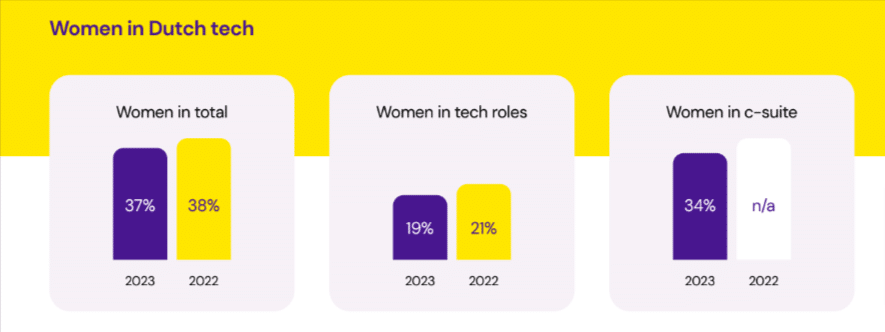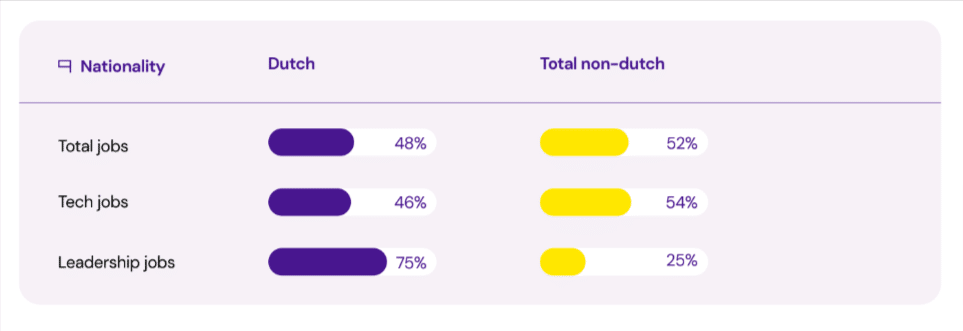The Dutch Diversity and Inclusion in Digital Benchmark, which aims to develop a Dutch tech ecosystem that is truly diverse and inclusive, has launched the Digital Benchmark 2023 report at the TNW Conference 2023 in Amsterdam.
The report sheds light on DEI in the Netherlands, revealing declining numbers and a lack of commitment among tech companies.
The 2023 report was launched in collaboration with Diversity Hero, Techleap, and the Taskforce D&I by NLdigital, and supported by Booking.com and the Ministry of Economic Affairs and Climate.
Here are some key takeaways from the report.

Women working percentage in tech fell down
According to the report, the percentage of women working in the tech sector has dropped from 21 per cent to 19 per cent in the past year.
In this year’s findings, UX Design and QA testing roles have the highest proportion of women, accounting for 47 per cent and 39 per cent, respectively.
However, women’s representation in senior tech roles remains 13 per cent.
D&I strategy, policies, and processes
The report also reveals that 42.3 per cent consider themselves at the beginning of DEI strategy and policies.
D&I strategy is a way in which an organisation plans its actions over some time, to improve its position and achieve what it wants in D&I.
64% tracked pay
However, 64 per cent of the companies that took part in this benchmark are tracking pay ahead of the EU Pay Transparency Directive.
The current average gender pay gap according to the EU is 13 per cent, showing that there is still work to be done.

Scores low in cultural diversity
The key D&I indicators within the Dutch tech landscape have declined, according to the report.
Similar to gender diversity, cultural diversity scores are low.
According to the survey, 75 per cent of leadership positions are held by native Dutchmen. The remaining 25 per cent of leadership positions are held by non-Dutch individuals.
This suggests that retaining tech talent may be more challenging for non-Dutch individuals.
Although the overall representation of non-Dutch individuals in tech jobs is around 54 per cent, the data highlights that the non-Dutch face barriers to career progression once they enter the tech industry.
72% leave out inclusion questions
According to the data, 85% of companies conduct Employee Engagement surveys while 72 percent fail to prioritise evaluations on inclusion and belonging.
The report also says a considerable portion of organisations lack the necessary commitment and tangible measures to progress beyond the initial stages.
This imbalance hampers the advancement of a truly inclusive Dutch tech industry, mentions the report.
Conclusion
The report emphasises the need to align the country’s D&I efforts with those of other European nations in order to achieve significant improvements.
By prioritising strategies, knowledge-sharing across European borders, and collaboration between government, industry leaders, and organisations, Dutch tech can drive transformative change and position itself as a frontrunner in the D&I landscape.
Gillian Tans, founder of Diversity Hero, says, “Let’s start combining commitment with what tech companies do best: follow the data. We have to dig deeper, learn from each other, find patterns, and be courageous. It’s time to make changes that work.”










01
From telecom veteran to Dutch Startup Visa success: The Jignesh Dave story